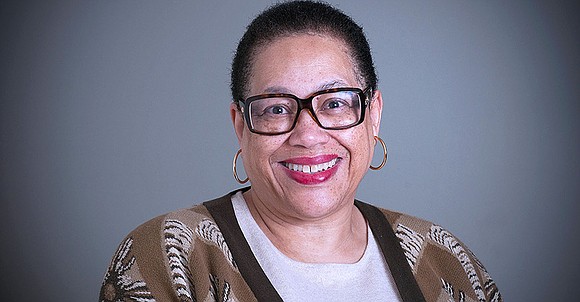Unaffordable rental costs now plague 44 million people in every state Economic inequality places most risk of eviction on Blacks and the poor
By CHarlene Crowell | 2/2/2023, 12:18 p.m.
By Charlene Crowell
For the first time in more than two decades of research, every state now has renters who are nearing a financial breaking point in housing affordability. New research released by Harvard’s Joint Center for Housing Studies (JCHS), and Moody’s Analytics independently reach the same conclusion: consumers are struggling with a growing percentage of their incomes going towards keeping a roof over their heads.
On January 19, Moody’s released its update on rental affordability, and concluded that “Rising mortgage rates caused many households to be priced out from home buying and would-be buyers to remain renters...Apartment demand surged as a result and drove rates sky high. As the disparity between rent growth and income growth widens, Americans’ wallets feel financial distress as wage growth trails rent growth.”
Days later on January 25, Harvard’s JCHS went a step further by factoring race and poverty into its analysis.
“Renters living in communities of color, and in high-poverty, lower-income, and lower-rent neighborhoods were more likely to experience financial distress… More than three-fifths of renters behind on their housing payments lived in communities of color, while about two-fifths lived in high-poverty or lower-income neighborhoods,” concluded JCHS.
There was a time when a single, full-time income could financially provide for families. But today, most families are working harder than ever and still need at least two incomes to make financial ends meet. According to the National Low Income Housing Coalition, in 2022, there was no county, metro area, or state where a person earning the federal or prevailing state or local minimum wage for a 40-hour work week can afford a modest two-bedroom rental home.
Although the Census Bureau finds that the nation’s median income in 2021 was $70,784, that same figure for Black America was only $48,297. This $30K income difference is further examined by a Federal Reserve Bank wealth inequality update.
On average, according to the St. Louis Fed, Black and Hispanic families owned about 25 cents and 23 cents, respectively, per $1 of white family wealth. These substantial gaps remain largely unchanged despite fluctuations from 1989 to 2022.
In response to these and other issues, a report by the White House Domestic Policy Council and National Economic Council recently issued the White House Blueprint for a Renter’s Bill of Rights to promote fairness for Americans living in rental housing. The document calls for:
Safe, quality, accessible and affordable housing;
Clear and fair leases;
Education, enforcement, and enhancement of renter rights;
The right to organize; and
Eviction prevention, diversion, and relief.
“Over 44 million households, or roughly 35 percent of the U.S. population, live in rental housing,” states the plan. “And while federal laws such as the Fair Housing Act, the American with Disabilities Act, the Violence Against Women Act, and Fair Credit Reporting Act offer renters certain focused protections, there is no comprehensive set of federal laws protecting renters. Instead, our nation’s rental market is defined by a patchwork of state and local laws and legal processes that renters and rental housing providers must navigate.”
However well-intentioned, the newly-released principles lack authority to require implementation. But the Department of Housing and Urban Development (HUD) has embraced the effort by allocating $20 million for its Eviction Protection Grant Program, which will fund nonprofits and government agencies to provide legal assistance to low-income tenants at risk of eviction. The agency also will move toward requiring certain rental property owners to provide at least 30 days’ notice if they plan to terminate the lease of a tenant due to nonpayment of rent.
After more than 50 years since enactment of federal laws to ensure fair housing, equal employment, equal credit, and more, a lack of consistent enforcement of these laws have allowed back-tracking on hard-fought victories. A litany of bad behaviors by unscrupulous landlords will continue to ignore laws unless aggressive and consistent enforcement makes it clear that proportionate prices will be paid.
Only weeks before Dr. King’s assassination, his prophetic voice remains as timely as it is timeless:
“Do you know that most of the poor people in our country are working every day? They are making wages so low that they cannot begin to function in the mainstream of the economic life of our nation. These are facts which must be seen. And it is criminal to have people working on a full-time basis and a full-time job getting part-time income.”




